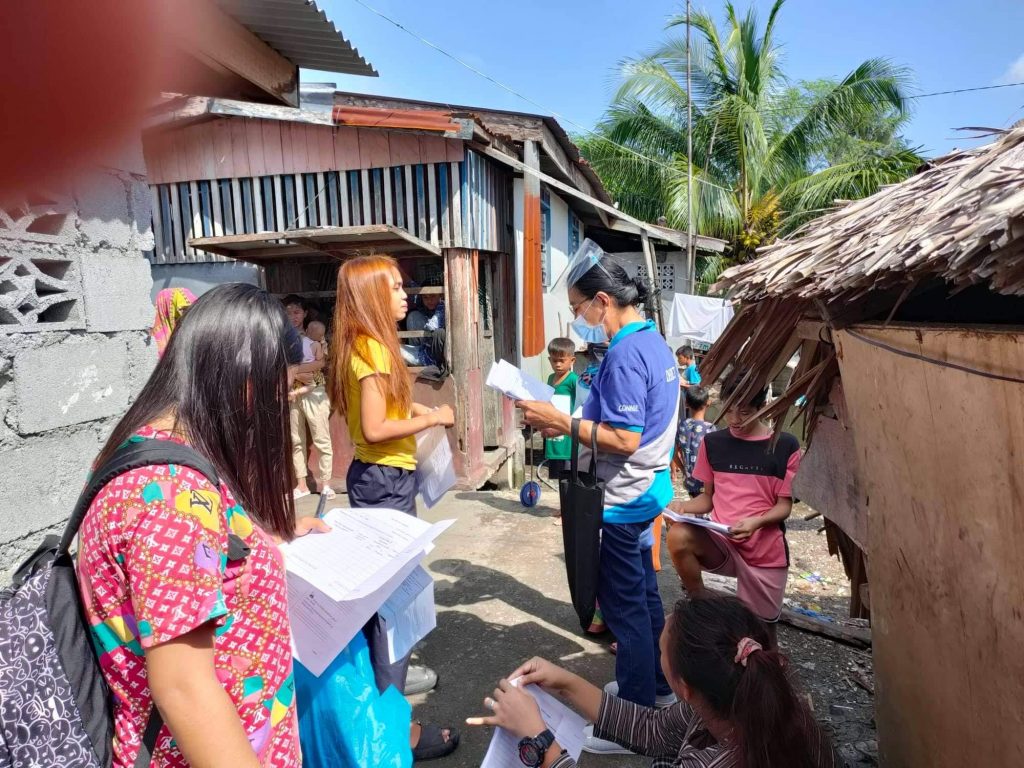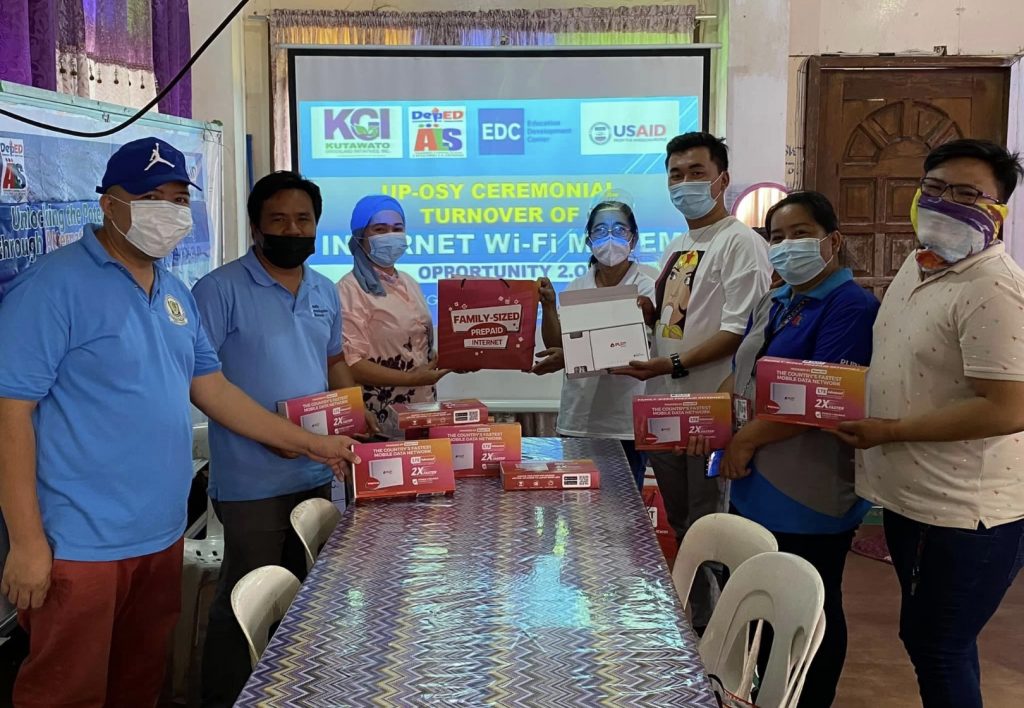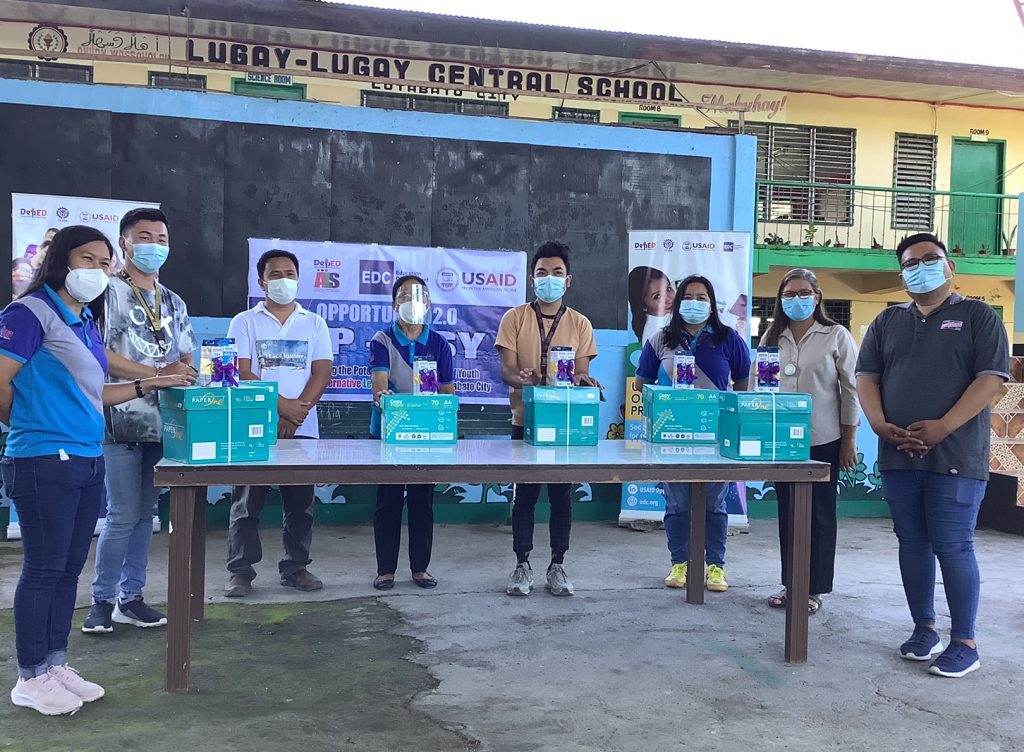Two years after the pandemic hit the Philippines, distance learning remains a challenge for ALS in Cotabato City. As of January 2022, there is over 7,000 out-of-school youth (OSY) in the city, only a number of whom are currently enrolled in ALS. In hard-to-reach areas, multiple ALS learners have to share a single module due to the limited supply.
“Kami po ang sariling nagbibili ng aming school supplies, bond paper at ink upang maka-reproduce ng modules at learning activity sheets (We bought our own school supplies, bond paper, and ink just so we can reproduce modules and learning activity sheets),” said Maria Concepcion A. Sumudio (Ma’amConnie), a local District ALS Coordinator in Cotabato City, teary-eyed as she recalled how hard it was to teach with little to no support and resources.

“Pagdating ng KGI, thankful kami kasi nabigyan na kami ng complete set ng ink at bond paper. Binigyan pa ng modem ang community centers. Iyon ang malaking nakatulong sa amin upang mapaluwag angaming pag-deliver ng services sa mga bata. Ang learning ng mga bata ay naging possible (When KGIcame, we were thankful because we were provided a complete set. They also provided modems to community learning centers. It helped us deliver services much easier. It made the youth’s learningpossible),” Ma’am Connie concluded.
The Kutawato Greenland Initiatives, Inc. (KGI), a recipient of Opportunity 2.0’s Youth Community Grant is an organization that provides skills training and other services to disadvantaged communities including farmers, fisherfolks, indigenous peoples, and the youth. The grant, amounting to Php 250,000, enabled the organization to provide ample assistance to the DepEd ALS District 5 in Cotabato City, making an impact on the lives of more than 380 teachers and learners.

With face-to-face gatherings restricted, slow internet was also one of the reasons vulnerable youth had difficulty continuing education. As such, internet modems were provided to at least nine ALS community learning centers. KGI, as a community-based organization, has close working relationships with local DepEd and barangay officials. This way, the equipment and materials provided are maintained for long-term use.
In addition, every month, a reflection session among out-of-school youth and adults is conducted so that they can practice communication and life skills they learned from their online modules.
“Most of the out-of-school youth in Cotabato City belong to [underprivileged] communities [which] make them more susceptible to early marriage or child labor, and be forced to work for a living. With that, the KGI sees the need to empower, educate and encourage them to be enrolled and proceed to schooling,” KGI Program Manager Raisah Cayoga said.

“Kami sa KGI, pinaparating namin sa kanila na ‘yong ALS natin ay ito ‘yong magandang opportunity na maka-level ang OSY sa regular school (We at KGI, we let them know that ALS is a great opportunity for OSY to get education at par with formal schooling),” Cayoga added. “We make education more convenient and accessible for them.”
At present, KGI is looking into expanding similar assistance to other districts in Cotabato City, in partnership with other local actors, including the local Youth Development Alliance. Community-based organizations like KGI, along with the Education Department and local government units are crucial in providing holistic, sustainable support to vulnerable youth. This is why part of USAID Opportunity 2.0’s design is to launch a grants program that will strengthen a wide variety of local actors around the youth, including higher education institutions, training services providers, and youth-serving organizations.#

